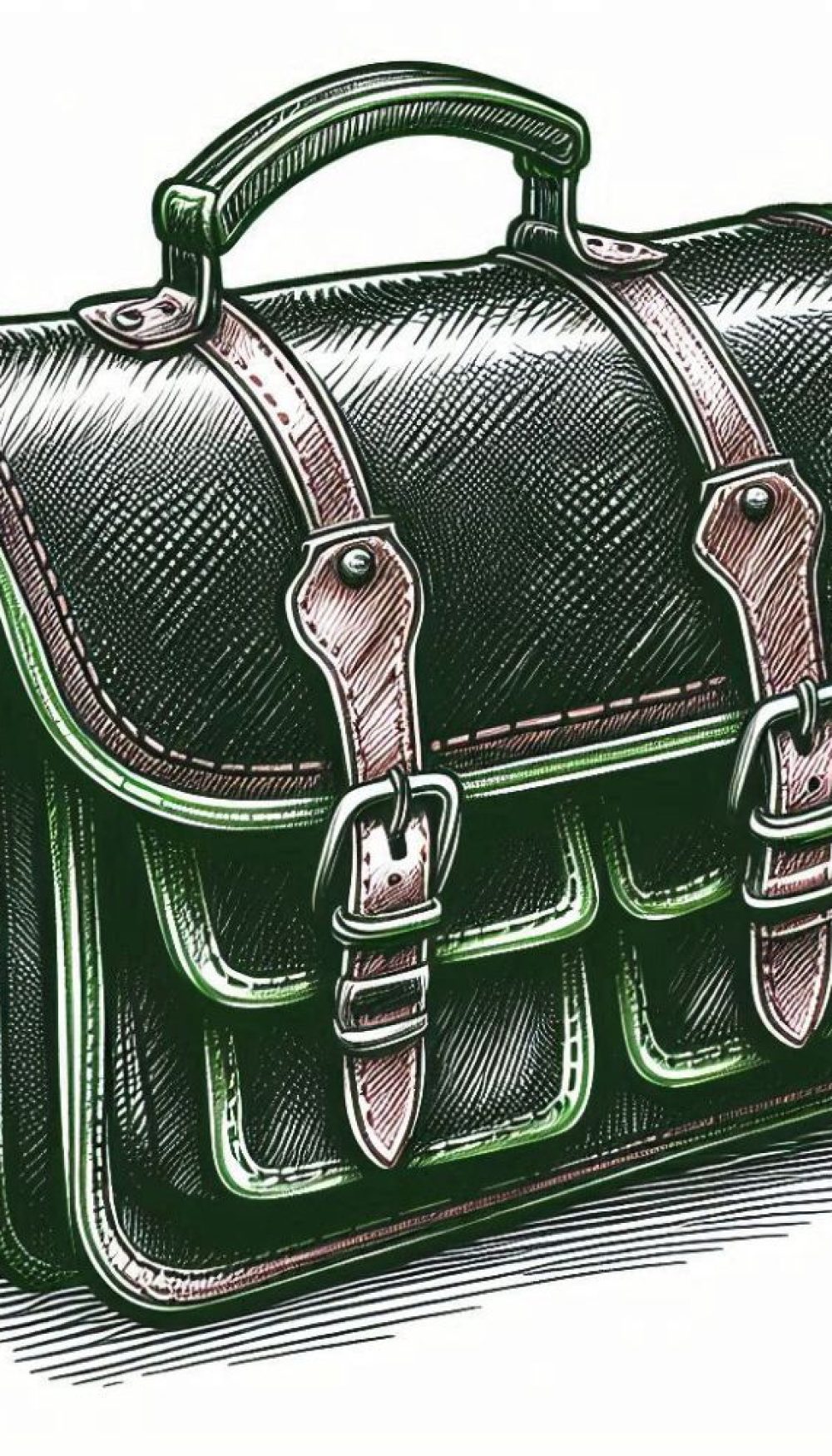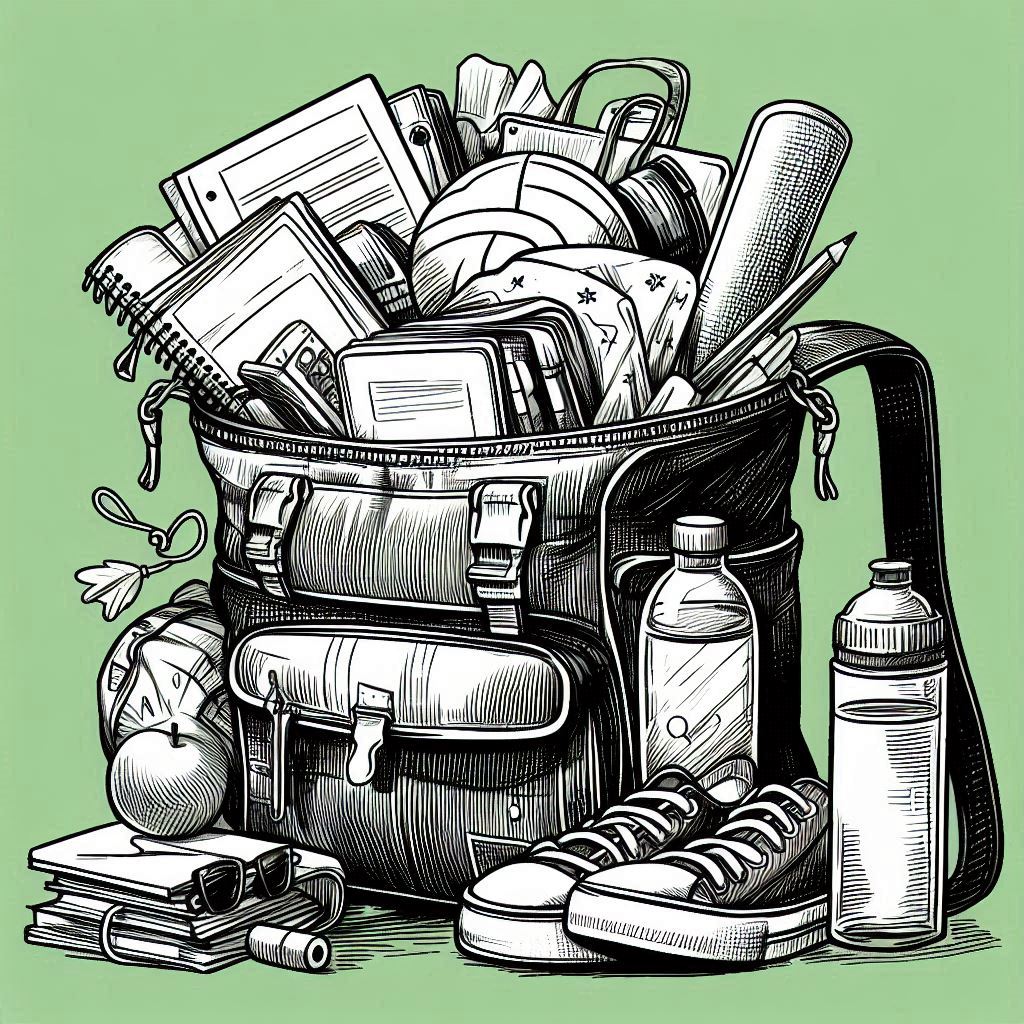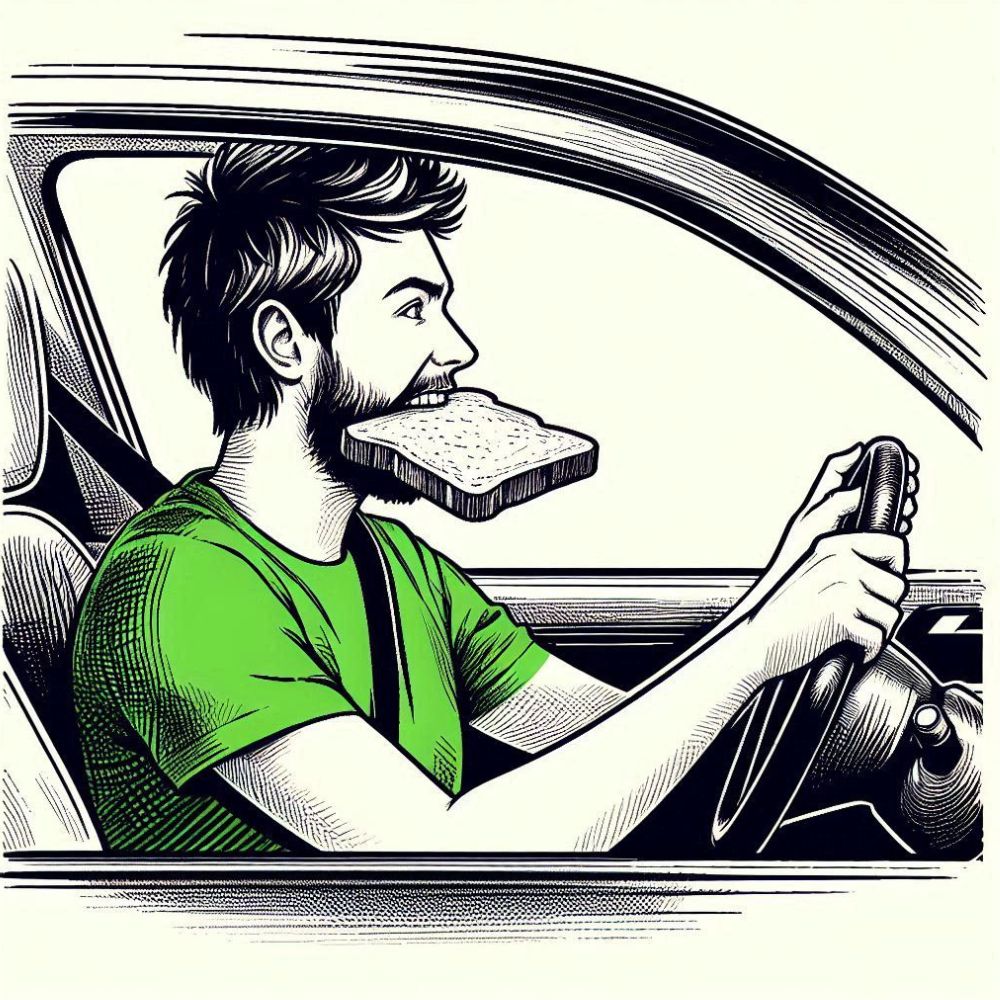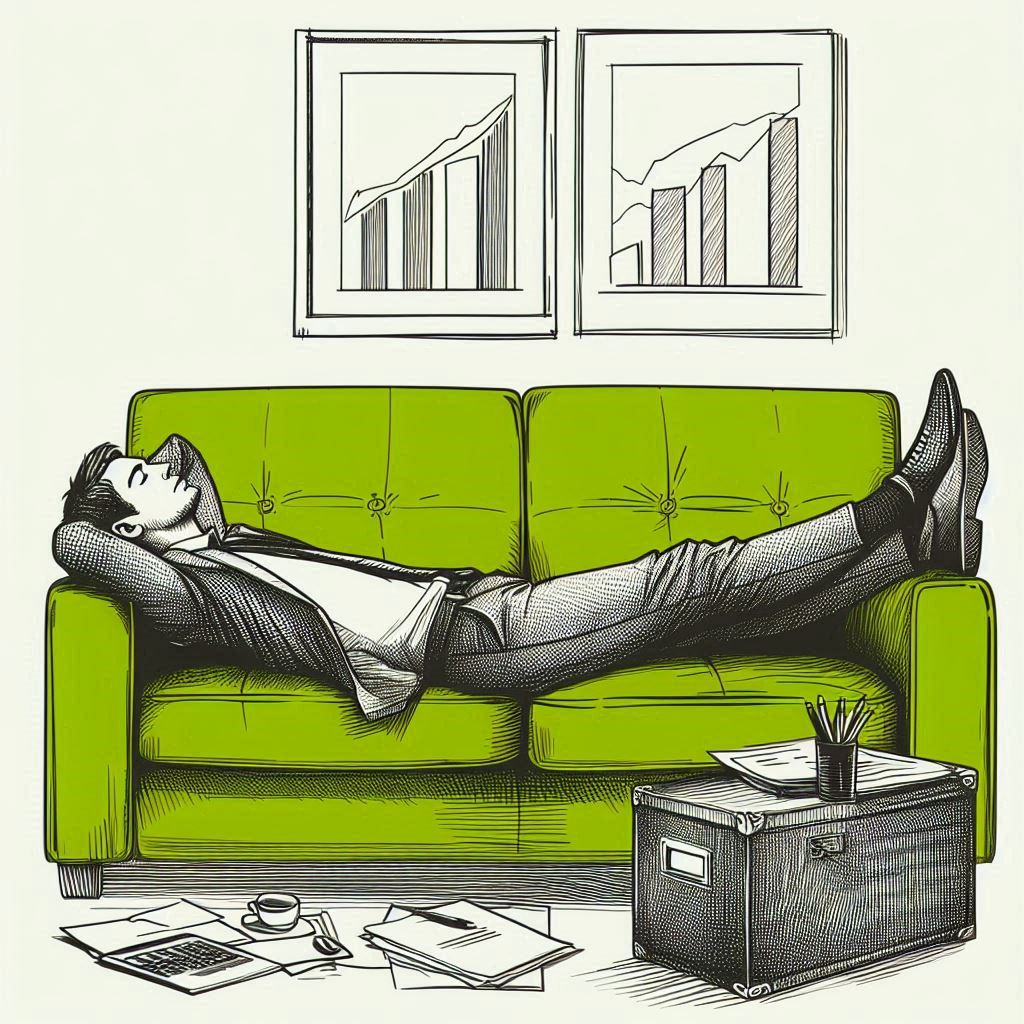Timeless Wisdom
Homespun advice, this. It’s from the same old-school-of-thought as ‘make your bed’.
A task you would think makes no real difference to the quality of life, but mysteriously does.
There’s a mass of anecdotal evidence we should at least try it and see what the outcomes are.
The concept is incredibly simple. If you are a schoolboy then put your book bag, your gym kit, your school uniform and anything else for Monday in the right place on Sunday night.
Then on Monday night lay it all out for Tuesday, and so on…

Simple as that. Don’t leave it until the morning to get your ducks lined up. If you are no longer a schoolboy this means your keys, wallet, phone, headphones, lunch, work laptop, ironed shirt… whatever you take with you.

Leave as little as possible until the morning. If you are a parent this might also include the kids’ homework, coats, bags, lunches, gym kits, swimming bags… Leave nothing to the morning that can be done the night before.
So how does this make a difference? Why is it better that this be done in the evening rather than the morning? Surely it takes the same amount of time either way?
Time is at a premium in the morning. 15 minutes is precious. The atmosphere can be chaotic. Families rarely wake up any earlier than necessary. There isn’t spare time.
If you need to be out of the house at 8AM & it takes 60 minutes to get ready, that is generally when families rise. On a Wednesday night 15 minutes can be spared. If the kids are asleep, you are mooching around anyway, putting the cat out, checking the doors, it is easy to also lay out your keys, wallet, your phone…


Not so easy on a Thursday morning when the whole house is in tumult. There’s an inflationary effect overnight, that same fifteen minutes is a lot more pressured when you can’t find your keys, the kids can’t find their gym shorts, there is a queue for the bathroom, you burned their breakfasts and the school bus will be passing in 8 minutes.
The benefits of a smooth morning are far out-weigh the effort it takes to carve one out.
Relatively low investment yields great rewards. If you win the morning, you win the day, and if you can minimise stress getting into work in the first place then you are far more energetic, calm, positive and emotionally stable when the work comes in.
Your mood will be better, you’ll find the work easier, you’ll be more creative, expansive, imaginative in your solutions… your conversations will be more natural, free & easy with your colleagues.
You may be able to keep up the charmed state for the whole day, and it’s not just you who profits, but every member of your family.
Every day is filled with optimism, possibility, and belief. Momentum will be on your side from the very start.

If you are in a good mood everything gets easier, people will do more for you, nothing upsets you and nothing knocks you off your stride. This is partly about momentum, but it is also about being well rested and well fed.
A prepared morning enables you to take the time to supply yourself & your family with proper nutrition. When mornings go bad we run on car snacks, toast, or cereal or a cup of coffee. We know from experience that we can run on very little, sure, but we need to take nourishment seriously if we are going to perform at our best for the whole day.
A strong foundation for the day yields far more rewards than waking up to a frenetic, disorganised rush hour before leaving the house.

When the morning ‘clicks’
When your mornings are designed intentionally to be functional and beautiful, the whole operation runs on rails like a well-oiled machine. You look forward to your mornings, bouncing out of bed in anticipation of another great day. Make it easier on yourself by taking care of chores the night before.


Beyond the home, the principle can also be leveraged at work.
In the modern workplace this means looking at the meetings in your diary for the next 5 working days, scheduling your tasks list for the day, and choosing at what times to check your emails.
We detail organising our diaries & scheduling tasks HERE
It helps to do this at the end of your working day, not at the beginning. This frees you up to hit the ground running when you rock in and tackle your first piece of work. Right away while the going is good, the energy levels are high, and nothing has interrupted your momentum.
Don’t immediately drain your mood with a period of musing, checking emails, chatting, drinking coffee with the monitor switched off, waiting for the day to start in earnest; it might never get going.


Keep the going good and try to sustain it until you clock out.
A bad mood inhibits our creativity and our appetite for novelty. It makes sense that when we are down in the dumps we shun new things. It is evolutionary. We stick to the tried and tested, are less expansive. When we are in a good mood we try things, we experiment & discover. We are playful and contemplative. We make progress in our work.
Populate your to-do-list for tomorrow at the end of today. Quickly polish off any small jobs that are loose ends & just need a few minutes.
You can tie this daily washup in with your reflections from the day, your proudest wins – anything that stands out as having been done well – and a tip for how you’d approach it differently next time.

Schedule your most difficult tasks where you have most energy & enthusiasm.
First thing upon getting in, and just after coffee breaks. Plan your energy as well as your in-tray.
At face value doing this at the end of the working day, rather than in the morning, just means giving up 5-10 minutes of your leisure in the evening in order to improve the following day but there is power in this. Committing a little extra effort now & sparing yourself a good deal of discomfort later is an effective investment in your own future.
Leveraging the best hours
There appears to be powerful scientific reasoning behind all this. All of the confused tangled images & impressions of the day are ordered & organised by our sleeping brains while we are asleep. we prepare ourselves mentally for the day ahead every night. Anybody who has had an anxiety dream the night before an exam or a job interview will agree that this is true.

There is a large body of traditional opinion in favour of sleeping on a problem that applies here. Innumerable musicians, artists, inventors, and writers have been stumped by a knotty problem, and gone to sleep only to be presented with a finished solution by their unconscious, sleeping mind. This has also been demonstrated in several studies on motor skill learning & problem solving challenges. Groups who slept were more successful in solving problems in both these studies too
Lee Zlotoff, who wrote the television show McGyver was constantly having to be as creative as his fictional hero in contriving scenarios and ingenious solutions for each weekly episode.
He adopted a set-it-and-forget-it approach that has since become famous – write it down, forget about it and do something else – mildly stimulating but not taxing – like gardening or walking. Return to the task & unleash the work that your subconscious mind did for you while you were otherwise engaged.

You can leverage the immense processing power of the subconscious when your brain is otherwise engaged – or asleep. You see it in action when you win arguments in the shower, have a Eureka moment in the bath, or remember something important while driving.
For us this process of preparing yourself for the following morning leverages the same principle. We will have already laid out our diaries for the day ahead, what we are going to do and when, and then in the evening we planned out what to wear, what we need in the morning. We give our brains a chance to digest the information & formulate a plan to best solve the problems we will need to address the following day.
If we have a presentation to prepare, or a design task to complete the following morning, then your brains will have been tipped off the night before & can start to propose solutions when the time comes to do the work – refreshed & prepared. Our minds are already subconsciously digesting the effort required & proposing solutions while we are reading in bed or sleeping. You have essentially wound up & set up the house the night before so that it runs like clockwork in the morning.

Front of mind
A daily post it note & a weekly post it note on the fridge or on the bathroom mirror can help – don’t brush your teeth & go to bed until you have done the daily stuff (School uniforms ironed, school lunches in the fridge..) AND the weekly (if it is a Tuesday, Gym bag, or a Thursday Swimming Kit,,,).
There are also a countless apps, both free and paid, that you can install on your phone to prompt you daily or weekly what you need to get done to smooth your progress in the morning. A basic mobile phone alarm clock app can normally work fine, with a list of 6 tasks attached to it, timed to chime an hour before bed.
A further pro tip once your kids are school age is to involve them in the process.
Encourage them to sort their own uniforms out the previous day and dress themselves before they even come downstairs. It all adds up. You’ll create a smooth-running home & you’ll be raising more capable kids, a bit more independent, when tying their own shoes, packing their own bags, carrying their own lunches, making their own beds… It does them good to know parents are not skivvies, and it pays back every morning in free time.

“The Best Preparation for tomorrow is doing your best today”
H. Jackson Brown Jr.
Depending on your approach to the morning it can launch you, buzzing & radiant, into the day, or it can leave you feeling frazzled before the day proper has even begun – win the morning win the day, Don’t let it drag you down. Automate as much as possible, find a breakfast that you, your spouse, and your kids can agree upon & make that the staple most days. Take out the decision making, the surprise, the delay. Maximise your energy & keep everybody upbeat. It will feel like plain sailing and everybody will notice the difference in you – just as you’ll notice it in yourself.
